Projects

Photo: Genevieve Noyce
PathFinder
Pathfinder is an upcoming project with the aim of creating more broadly accessible technology for measuring local-level carbon emissions, based on the work we have already done to create DIY logger systems at SERC, elsewhere in the US, and in Germany. Over the course of the upcoming summer we hope to develop, build, and field test an auto-chamber system for measuring carbon (CO2 and CH4) flux that is low cost, deployable under solar power in remote areas, and capable of long-duration high-temporal-resolution carbon flux measurements.
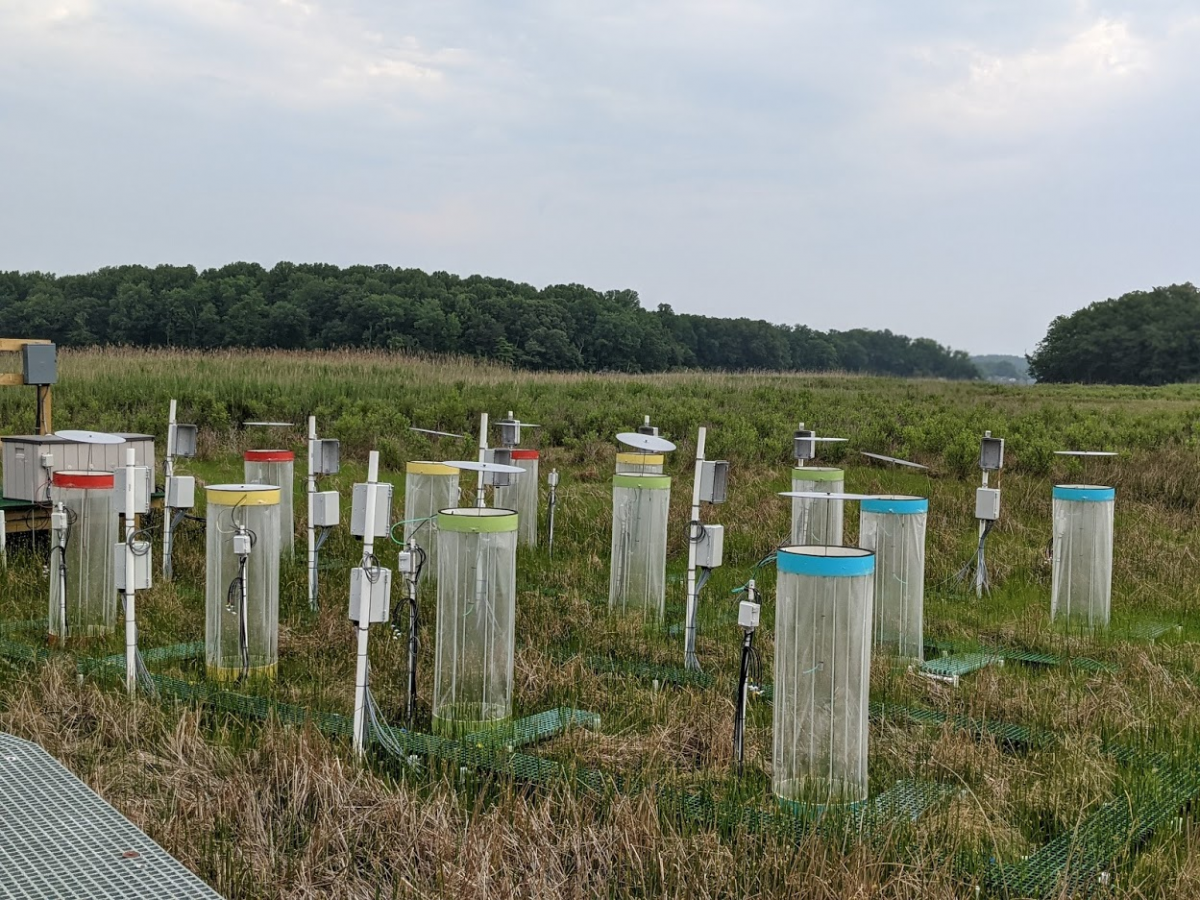
Photo: Genevieve Noyce
GENX
The Greenhouse gas Emissions NeXus experiment is the newest experiment at the Global Change Research Wetland led by Genevieve Noyce. Using an automated methane chamber system, GENX aims to quantify rates of anaerobic decomposition pathways that regulate methane emissions across different time scales. Additional elements like warming, salinity, and inundation will also be incorporated to determine the individual and interactive effects of these variables on methane cycling.

TEMPEST
The Terrestrial Ecosystem Manipulation to Probe the Effects of Storm Treatment (TEMPEST) project is run as a partnership between SERC, the Pacific Northwest National Laboratory, and the U.S. Department of Energy. The TEMPEST project is monitoring the effects of massive storm events on forest ecosystems, by applying large quantities of salt and fresh water to forest plots. The TE Lab supports the TEMPEST project by helping to maintain the electronic infrastructure deployed in the forest ecosystem.
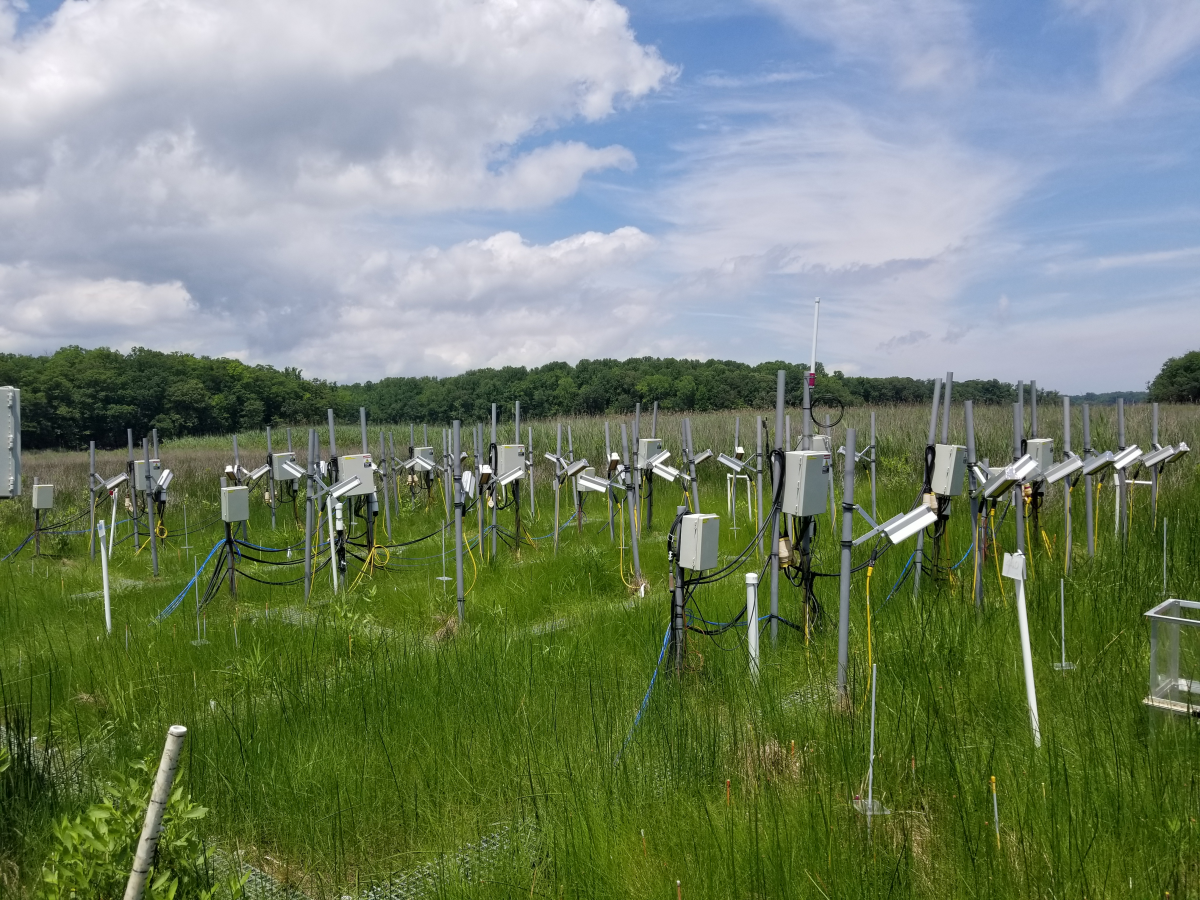
Photo: Genevieve Noyce
SMARTX
We support the data infrastructure of the Salt Marsh Accretion Response to Temperature eXperiment which models how future climate predictions will influence salt marshes, by maintaining a network of 6 remote CO2 sensors and warming cables. SMARTX aims to assess plant response to interacting variables (elevated CO2, an increasing temperature gradient above- and below-ground, and changes in inundation frequency) at SERC’s Global Change Research Wetland.
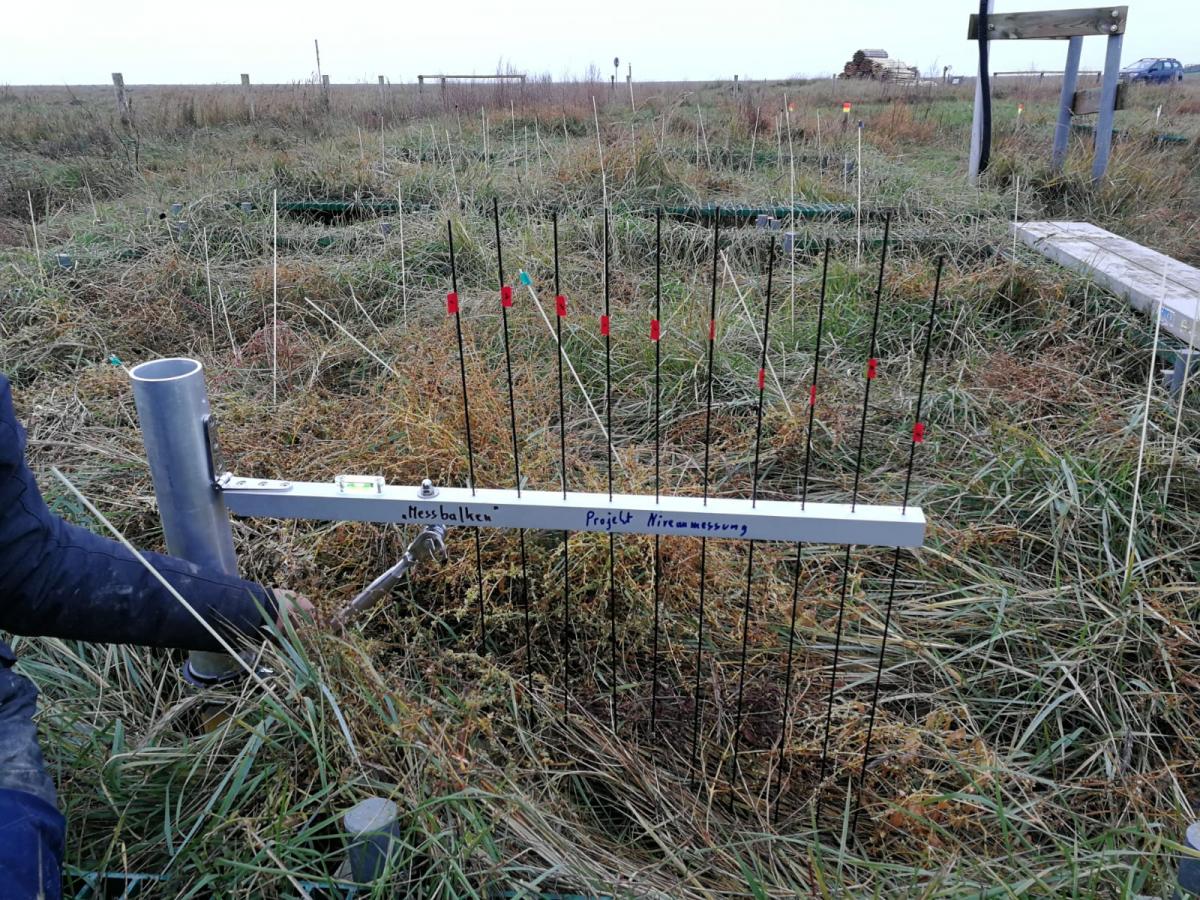
Photo: Mónica Salazar
MERIT
The Marsh Ecosystem Response to Increased Temperature is a warming experiment replicating SMARTX infrastructure in collaboration with scientists at the University of Hamburg to measure how salt marshes will be impacted by elevated temperatures in a Northern Sea coastal ecosystem. We support MERIT by implementing Arduino-based technology to create an affordable wireless control network allowing for analyses of plant community responses, successional dynamics, carbon sequestration, and soil accretion.
Follow @ExperimentMERIT for project updates!
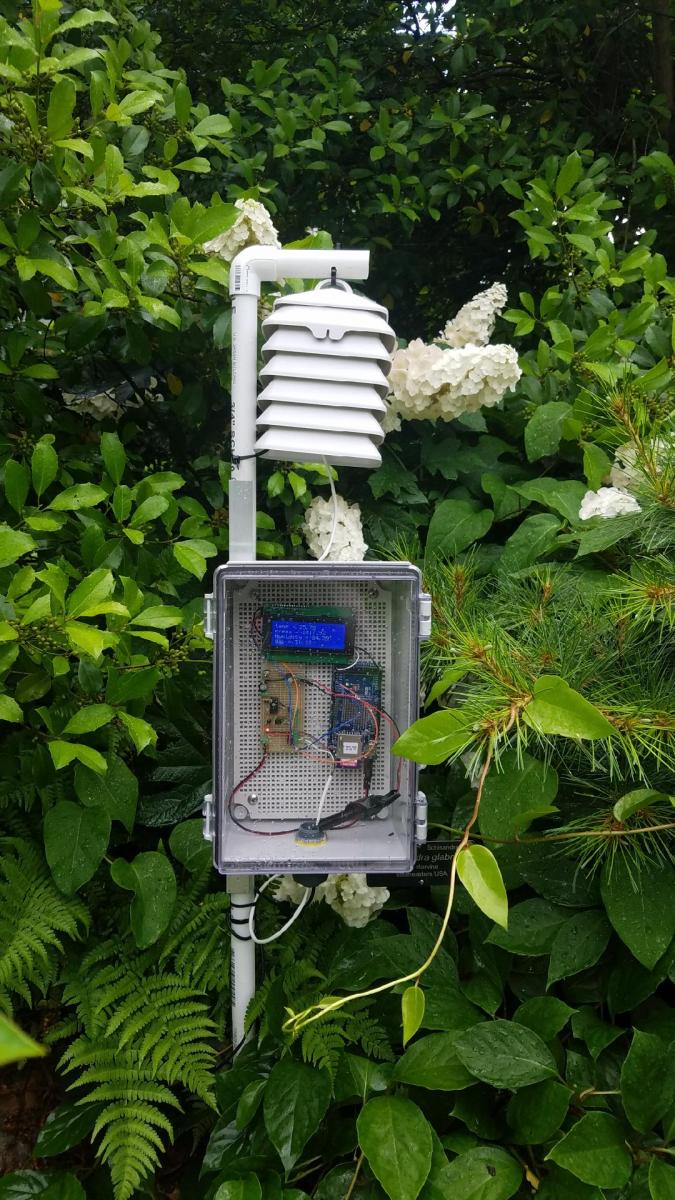
Photo: Marc Rosenfield
Carbon in the Capital
Carbon in the Capital is a new CO2 monitoring Participatory Science project in collaboration with Ph.D. candidate Marc Rosenfield in the Zanne lab at George Washington University. Carbon in the Capital has deployed 33 of our CO2 sensors throughout all 8 Wards of Washington D.C. to monitor changes in emissions during COVID-19 lockdowns. So far, results capture important interplays between transportation emissions and natural signals, which can be significant to mitigating human impacts on the carbon cycle and urban greenhouse gas removal.
Find more details on Marc’s project here!
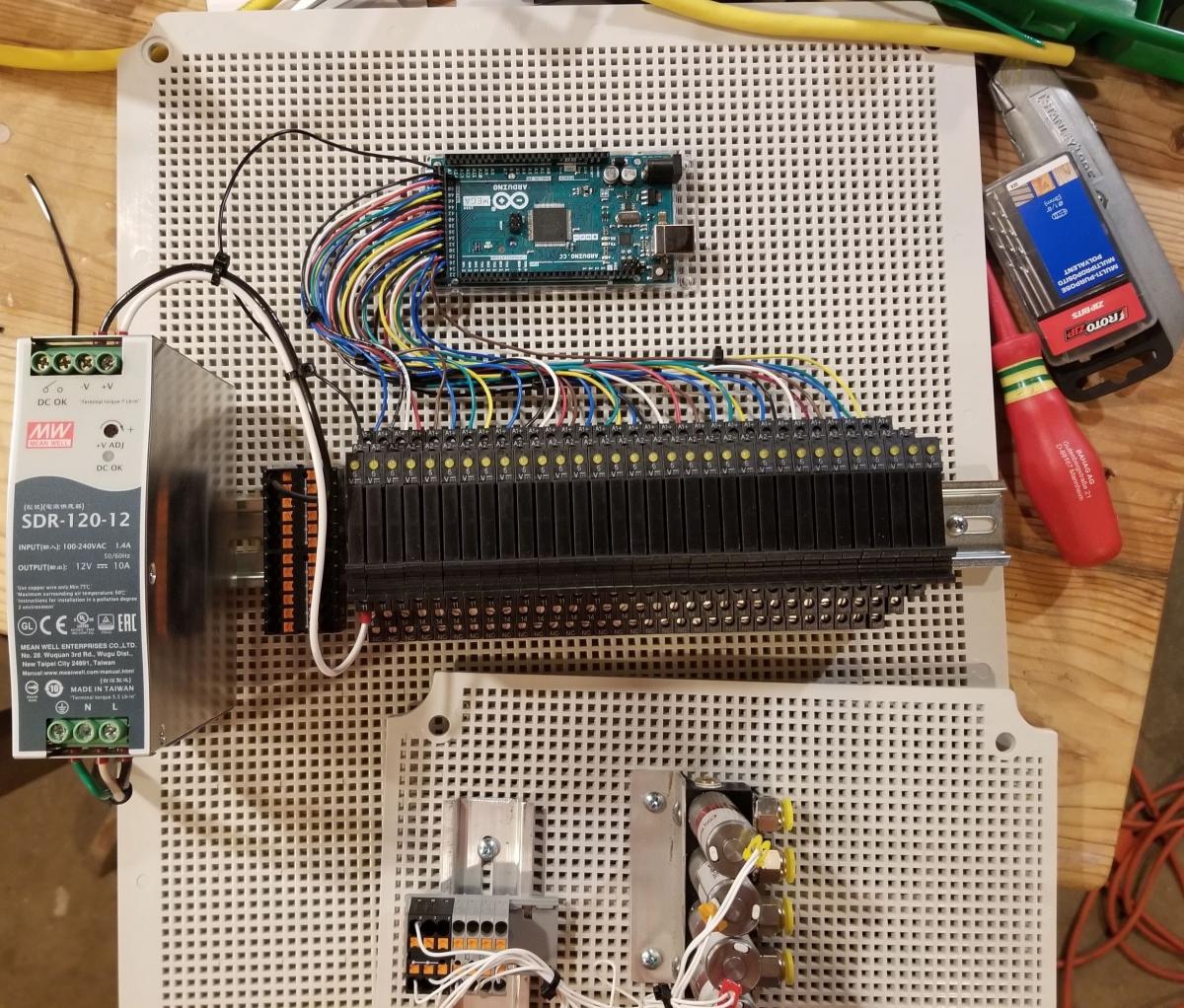
Photo: Roy Rich
TeRaCON
TeRaCON (Temperature, Rainfall, CO2, Nitrogen) is an 8-year-long novel global change experiment in collaboration with Dr. Peter Reich at the University of Minnesota. TeRaCON exposes vegetation in a Minnesotan temperate grassland to manipulated temperatures, rainfall patterns, CO2, and nitrogen to examine the effects of these global change drivers on terrestrial carbon cycling. For TeRaCON, we designed warming infrastructure to manipulate temperature.
Find more about TeRaCON and its findings in Nature Geoscience!

